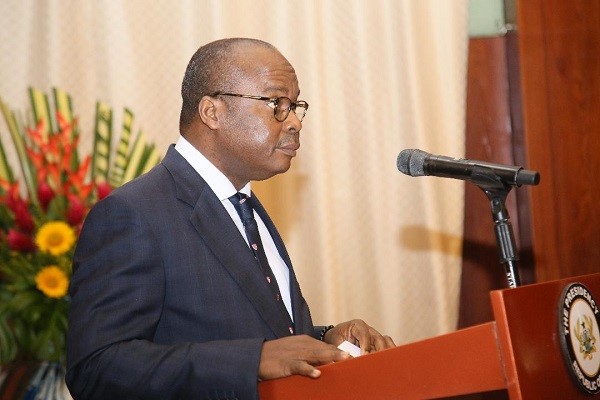Liquidity funding across the interbank market is receiving a major boost as banks continue to adopt the Global Master Repurchase Agreement (GMRA)-based guidelines for repurchase agreements (repos), the Bank of Ghana has said.
Introduced in 2019, the GMRA framework offers a low-risk option for short-term investment and liquidity funding on the financial market.
It contains a key feature that allows the transfer of title of collateral securities from the seller to the buyer. The title transfer under GMRA reduces credit and liquidity risk, as it allows the buyer to make use of the collateral during the tenor of the transaction, but return the same or equivalent securities to the seller at maturity.
The communications department of the central bank, in a response to some questions via email, told the B&FT that with the GMRA guidelines’ launch, interbank market GMRA-based repo transactions are expected to increase – eventually leading to a phasing-out of the collateralised repos.
“Our GMRA-based repo market is in its infancy. Most of the banks have signed the GMRA among themselves, paving the way for future transactions and fostering interbank liquidity funding,” the bank said.
Although, the collateralised repos are still being implemented, the central bank mentioned that some banks have referred the GMRA document to their Legal and Risk Management teams for review and advice.
“Once the legal technicalities are sorted out, GMRA will be rolled out fully and collateralised repos will be phased out,” the bank said.
Some local banks have used this opportunity to obtain liquidity in short-term, cross-currency repo transactions, using securities issued in the domestic market as collateral, the Bank added.
The BoG in its last monetary policy briefing of January 2022 indicated that the weighted average interbank rate – the rate at which banks lend to themselves – declined further to 12.68 percent from 13.56 percent, induced by persistent structural liquidity challenges on the interbank market, which represents the level of reserves in the banking system prior to market operations by the Bank of Ghana to supply or drain reserves from the banking system.
This, according to the bank, transmitted to the retail end of the market – and average lending rates of banks declined marginally to 20.04 percent in December 2021 from 21.20 percent recorded in the corresponding period of 2020.
Some market analysts have indicated that, ultimately, these dealings should boost secondary market trading and price discovery of bonds, and offer a cheaper and increased volume source of short-term funding.
Banks are required to report their daily repo transactions to the Bank of Ghana to enhance transparency. The repos are effective tools for effective monetary policy transmission, and serve as the channel through which the central bank can act more swiftly as a lender of last resort during periods of market stress.
According to the Central Securities Depository (CSD), as at the end of January 2022, a total of GH¢25.5billion of repo transactions had been settled, representing both collateralised repos of GH¢23.28billion and classic repos of GH¢1.75billion. Transactions between commercial banks amounted to GH¢21.8 billion, whereas the transactions between SSNIT and commercial banks amounted to GH¢1.51billion.
As the market develops, the BoG, together with the Ministry of Finance, is developing a more comprehensive framework.










